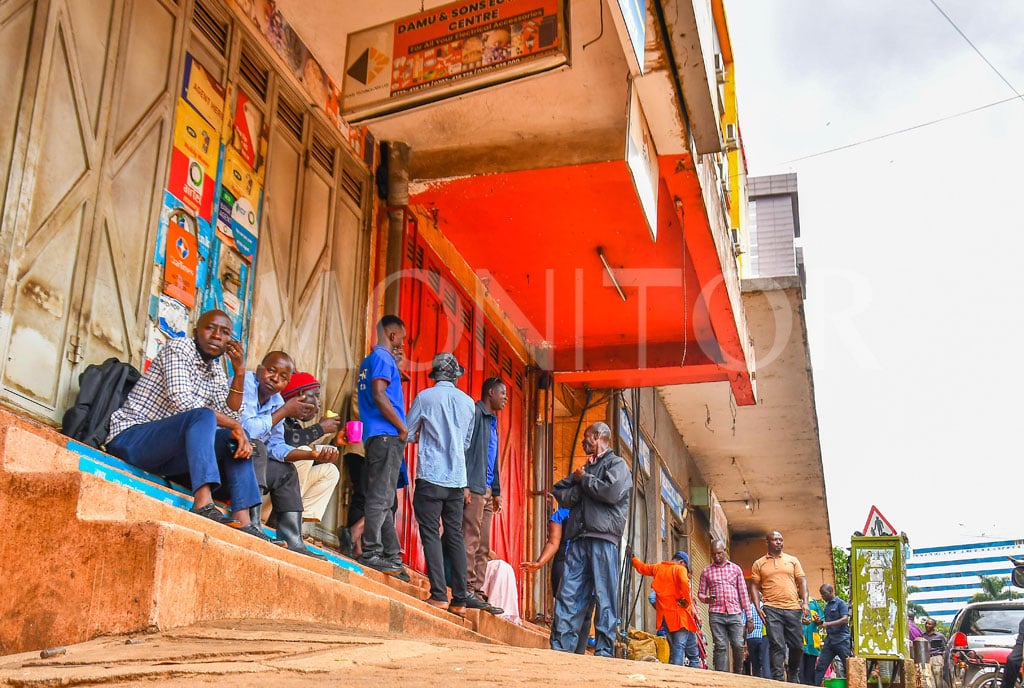Harriet Namwenya Mbaziira: a story of compassion gone wrong

Harriet Namwenye Mbaziira's body was discovered in bathroom. Courtesy photo
What you need to know:
On Sunday, January 8, Harriet Namyenya Mbaziira’s body was discovered in her home in Wakaliga
The brown storeyed house sits a little too close to the road, built in the 1970s architectural style, with large picture windows. The mood is quiet, though not overtly sad. Under a white tent in the foreground sit about 15 people talking in low tones.
A lone guard in a dark green uniform with the Ugandan flag emblazoned on one sleeve sits away from the group, outside a church built with iron sheets, which is adjacent to the house. He is in charge of the crime scene.
Paul Kafeero’s Walumbe zaaya serves as an eerie funeral dirge as plates of boiled rice and beans are passed around. A pack of six dogs – the deceased’s pets – wander in the compound. There is no food for them so they walk to a block of lockups and take a nap.
Every now and then, they walk to the wall beneath the bathroom where their owner, Harriet Namyenya Mbaziira, was locked up for three weeks after being murdered, and stand there for a while before they wander off again.
Her compassion
“Harriet was outgoing and jovial,” reminisces her sister, Maama Tereza. “She was really interested in the lives of those she loved, particularly the orphans she rescued from the streets.”
Such was Mbaziira’s impact that everyone who knew her shared anecdotes of her character.
Hussein Nsimbe, the chairperson of Wakaliga Zone B in Nateete, a Kampala suburb, sums it up by saying she always shouted greetings to him when he passed by her house. “She spent most of her time on the balcony, waving to people. She was a calm woman and if her tenants gave her trouble she called me to throw them out.”
As is his role, he would calm down both parties and act as an arbitrator through whom the tenant could pay rent to his estranged landlady.
Life after exile
During the turbulent political times, her late husband, Justice Emmanuel Mbaziira, took his family into exile in London where they spent 10 years, returning in 1995, the same year that he died. They had been married for 20 years.
“She set up a bridal shop and tailored wedding gowns,” explains Maama Tereza. “She was hardworking and eventually added wedding decoration to her business. Back then we had a lot in common and were very close. I am two years older than her and like her, I am educated.”
She went back to London for four years before returning again to settle in Wakaliga. By the time of her death, she had been a resident for five years.
Into spiritual mists
When Mbaziira became born-again, her siblings were not happy and they tried to dissuade her. However, she instead withdrew from them and got herself a new set of younger friends.
Nakibuuka, who would eventually help the police discover the body, became the deceased’s new best friend, a relationship that saw her family members barred from her home. Even at the vigil, Nakibuuka does not share the same tent with Mbaziira’s siblings.
Nakibuuka says instead of worshiping at the shrines of the family’s ancestral spirits, Mbaziira instead set them on fire, further alienating herself. Consequently, the angered spirits attacked her home, forcing her to abandon it.
Nakibuuka contacted Ssalongo Edward Lule, a self-proclaimed pastor to come and exorcise the demons.: “That was the first time I met Mummy London, as we call her,” says Lule, who became a close confidant. She wandered in different churches looking for spiritual fulfilment until she built a small church in her compound.”
Lule introduced her to Kaluule Prayer Mountain in Bombo, which has over the years attracted staunch born-again Christians. According to Lule, an army is being groomed on the mountain to bring back the glory of God to his people. The Holy Spirit will lead this army.
A new brand of compassion
Mbaziira joined this spiritual force and spent some nights there in December 2014. Fresh from her encounter, she decided to evict the church from her compound, accusing them of committing acts of sexual immorality in the church and noise pollution.
Her pattern of compassion also changed. Now, if she helped a street child, it was with the intention of introducing them to salvation. She completely shut out the non-saved people in her life.
Lule adds that “Mummy began writing a biography of Obiri-Yeboah, intending to fly the manuscript to Ghana for his son, Kojo to edit.”
John Obiri Yeboah, a ‘prophet’ of a brand of Pentecostalism mixed with African spirituality, was popular in Uganda in the 1980s. His son Kojo was arrested at Entebbe International Airport with a vibrating gadget believed to fell gullible believers.
Meeting Mbabaali
In August 2014, David Mbabaali, 30, appeared at Mbaziira’s door seeking shelter. He was an educated born-again Christian, he explained, but had no home.
Mbaziira pitied him and took him on to offer computer lessons to the other children. Within a few months, they were lovers and by the end of the year, according to friends, she had given him charge of her finances.
“I saw him only once and we never talked about him,” says Maama Tereza. “We were never open about sexual relations in our family.”
Lule also confirms that he met Mbabaali on a number of occasions but “Mummy London never introduced him as a lover. I just came to my own conclusions. Mbabaali is a regular at gambling joints in Nalukolongo and has many girlfriends.”
The murder
The deceased’s friends believe that putting her finances at Mbabaali’s disposal sealed her fate. “Suddenly, he was in charge of collecting the rent,” says Nakibuuka. “It was quite a sum for one who had been homeless less than four months ago.”
However, when she found out about the many girlfriends, the love turned sour and she wanted him out. Here friends believe that this is when he conceived the idea of killing her.
After the deed, the suspect rolled her in black polythene and sealed every air outlet in the bathroom; sticking cement in the pipes and nailing plywood to the ventilators. He locked the door and sealed it behind a thin cement wall, nailing a curtain to camouflage it.
“We began to wonder where our friend was,” Nakibuuka adds. “It was unusual for her to spend a long time without calling. Mbabaali told us that she had gone to Ghana to meet with Kojo Yeboah.”
They did not believe him because whenever Mbaziira was travelling they helped her pack and drove her to the airport. None of the tenants found it strange that their landlady, with whom they shared the same house, had left without bidding them farewell.
In any case, when the stench permeated the house, Mbabaali explained to them that the toilet upstairs was blocked and Mummy London was going to send the money for its repair.
Discovering the body
When Nakibuuka called him two days later, Mbabaali changed the story to say she was at the prayer mountain. A quick call to Lule ascertained that she was not there; he changed tact and said she had flown to London.
This time, Nakibuuka decided to visit the house again. “Mbabaali refused to let us enter the bedroom, saying Mummy had gone with the keys. I decided to go to the police when he couldn’t explain the stench.”
Interestingly, when the police came in, the suspect directed them to the bedroom and when Nakibuuka insisted that they inspect the broken toilet, they sent him to bring a hammer, which he promptly did.
While they were breaking the cement on the door, Mbabaali edged slowly to the balcony and jumped down. The police ignored him and continued to hit the door until they opened it, finding the body.
Mbaziira is survived by eight children, all living in London.
The background
On Sunday, January 8, Harriet Namyenya Mbaziira’s body was discovered in her home in Wakaliga. She had been missing for three weeks. So far, the suspects for her murder are some of her tenants, who are in police custody, and David Mbabaali who is on the run. The deceased’s body is at Mulago hospital where it was taken for a postmortem and is expected to be released to the family on February 14.




